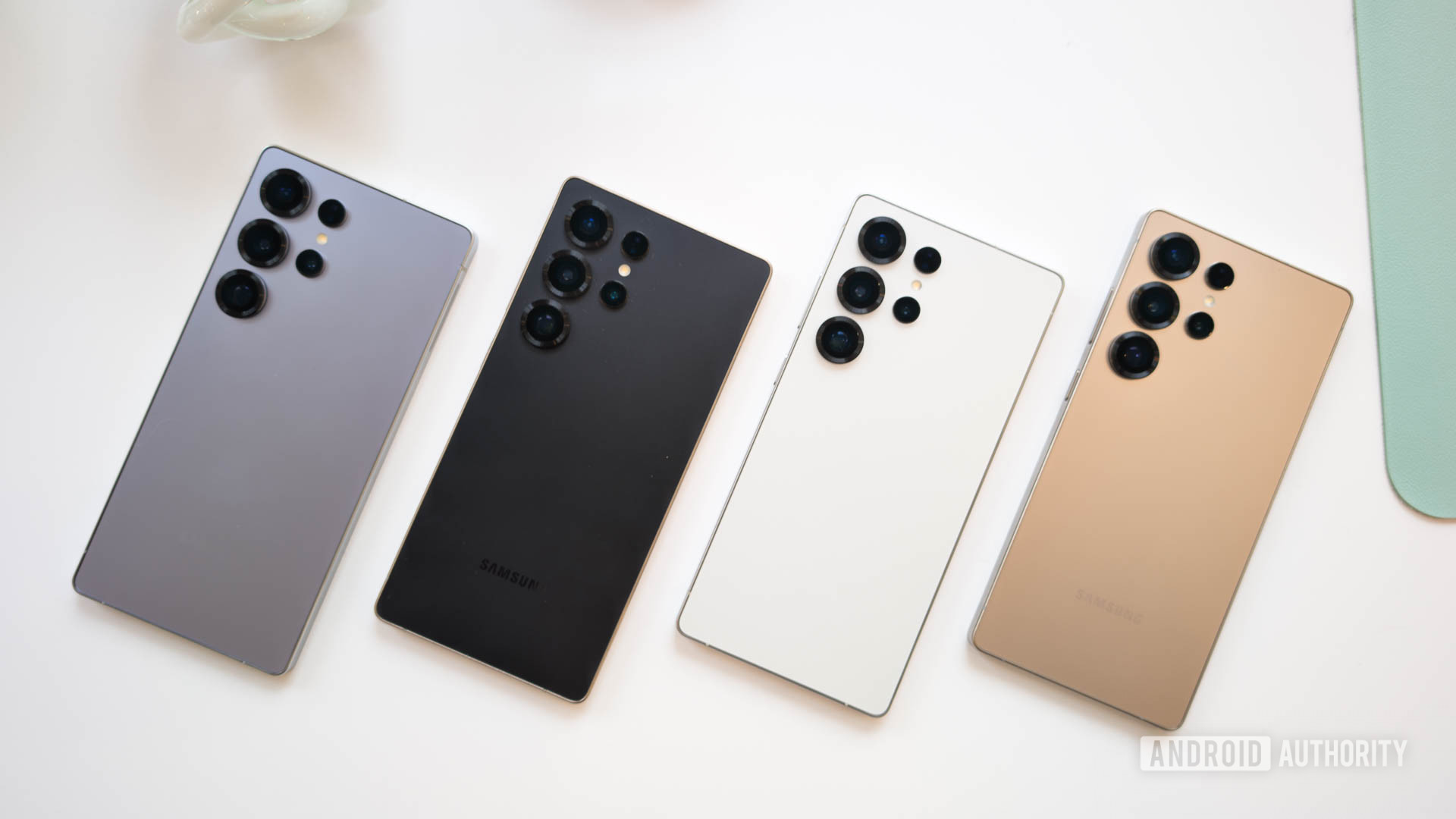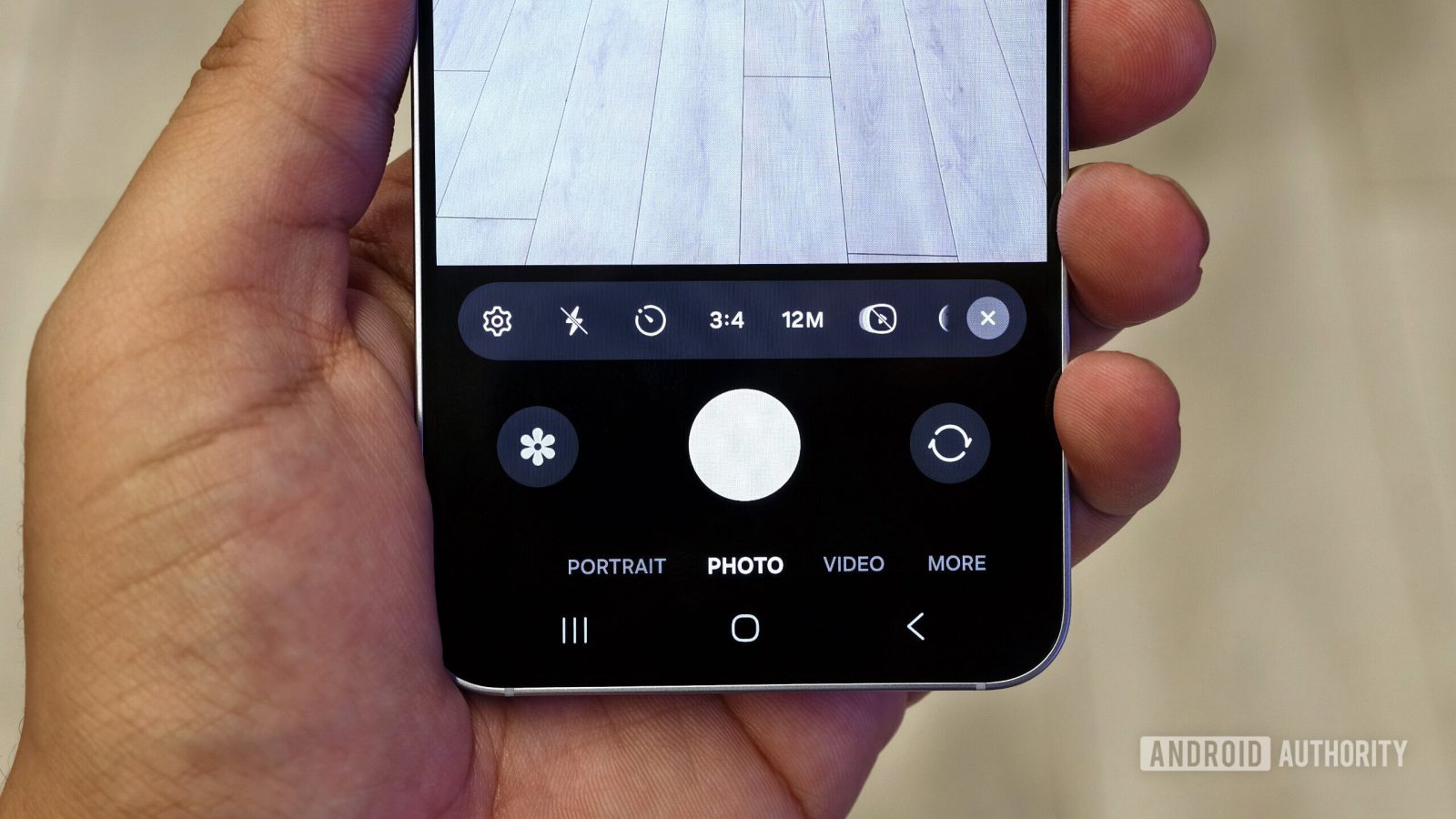Samsung phones have two major camera issues I’ve often lamented in my last year with the Galaxy S24 Ultra. For one, the camera app always seems to privilege longer shutter times, which causes moving subjects to appear blurry. Pets and kids, especially in darker environments, suffer the most. The more they move, the more this Samsung motion blur is evident.
For two, Samsung seems to have decided that its camera will actually snap the photo when you take your finger off the shutter button, not when you first touch it. This shutter lag is infuriating if you’re used to shooting with a Pixel phone or iPhone, both of which instantly capture the moment when you intend to, not a fraction of a second later. I often miss the moment on my S24 Ultra because the photo is taken after a small delay. I’ve tested and quantified this shutter lag before and shared a way to reduce it.
Well, the Galaxy S25 series is now official, and you bet that the first question on everyone’s mind at the virtual Android Authority headquarters was: Has Samsung fixed motion blur and shutter lag? Well, our very early results are very encouraging.
Samsung Galaxy S25 Ultra (early) shutter lag test

C. Scott Brown / Android Authority
My colleague Zac Kew-Denniss had some hands-on time with the Galaxy S25 Ultra series — running pre-release software, mind you — and I asked him to test the one thing we could reliably quantify: shutter lag.
Zac did his best to repeat the testing environment I used for my shutter lag article last year. He held his Galaxy S24 Ultra in one hand and the Galaxy S25 Ultra in another. He placed a Galaxy tablet in front of him, opened the stopwatch app, and snapped photos at the same time with both phones. The stopwatch shows us when each phone is capturing a photo — to the millisecond. Both phones had Intelligent optimization set to Maximum in the Camera app, while Quick tap shutter was disabled in Camera Assistant.
You can see the results of the set of 16 photos Zac snapped in the table below:
| Galaxy S24 Ultra | Galaxy S25 Ultra | Difference (ms) |
|---|---|---|
| Galaxy S24 Ultra
4.68 |
Galaxy S25 Ultra
4.55 |
Difference (ms)
-130.00 |
| Galaxy S24 Ultra
5.07 |
Galaxy S25 Ultra
4.94 |
Difference (ms)
-130.00 |
| Galaxy S24 Ultra
5.53 |
Galaxy S25 Ultra
5.46 |
Difference (ms)
-70.00 |
| Galaxy S24 Ultra
5.98 |
Galaxy S25 Ultra
5.85 |
Difference (ms)
-130.00 |
| Galaxy S24 Ultra
6.38 |
Galaxy S25 Ultra
6.25 |
Difference (ms)
-130.00 |
| Galaxy S24 Ultra
6.77 |
Galaxy S25 Ultra
6.64 |
Difference (ms)
-130.00 |
| Galaxy S24 Ultra
6.96 |
Galaxy S25 Ultra
6.90 |
Difference (ms)
-60.00 |
| Galaxy S24 Ultra
7.16 |
Galaxy S25 Ultra
7.16 |
Difference (ms)
0.00 |
| Galaxy S24 Ultra
7.42 |
Galaxy S25 Ultra
7.29 |
Difference (ms)
-130.00 |
| Galaxy S24 Ultra
7.68 |
Galaxy S25 Ultra
7.49 |
Difference (ms)
-190.00 |
| Galaxy S24 Ultra
7.88 |
Galaxy S25 Ultra
7.68 |
Difference (ms)
-200.00 |
| Galaxy S24 Ultra
8.40 |
Galaxy S25 Ultra
7.88 |
Difference (ms)
-520.00 |
| Galaxy S24 Ultra
8.47 |
Galaxy S25 Ultra
8.07 |
Difference (ms)
-400.00 |
| Galaxy S24 Ultra
8.66 |
Galaxy S25 Ultra
8.73 |
Difference (ms)
70.00 |
| Galaxy S24 Ultra
8.92 |
Galaxy S25 Ultra
8.79 |
Difference (ms)
-130.00 |
| Galaxy S24 Ultra
9.25 |
Galaxy S25 Ultra
8.92 |
Difference (ms)
-330.00 |
| Galaxy S24 Ultra | Galaxy S25 Ultra
Average |
Difference (ms)
-163.13 |
Our early test shows that Samsung has halved the shutter lag. It should be less obvious and problematic now.
There you go, an early positive sign that Samsung has improved the shutter lag on the Galaxy S25 Ultra. On average, you can expect a reduced lag compared to the Galaxy S24 Ultra of about 150 milliseconds. My tests last year showed that the S24 Ultra’s lag is usually about 300-400 milliseconds compared to the Pixel 8 Pro, so Samsung hasn’t completely made up for the entire difference, but it’s halved it. Maybe with the Quick tap shutter option enabled and optimization reduced, the S25 Ultra can be on par with Google’s and Apple’s fast camera shooting experience.
Notably, though, the remaining 150-200 ms of lag will be much less noticeable than 300-400 ms when you’re taking photos. You’re less likely to miss important moments and photos of your loved ones because your phone was slow to capture the photo.
Hadlee Simons / Android Authority
Galaxy S25
Zac also confirmed this in his hands-on with the Galaxy S25 Ultra, saying he felt the camera was much more responsive compared to his Galaxy S24 Ultra.
Our early impressions say the motion blur problem is also reduced, if not completely gone.
He also said that his quick tests on moving subjects suggest Samsung has reduced, if not fixed, the other issue — motion blur. He didn’t have time to objectively test that, but the photos he snapped with the pre-release unit didn’t exhibit any of the motion blur telltale signs.
I’m still calling this experiment an “early” test because we didn’t have the ideal setting to use a double-tripod, revert phones between left and right hands, compare the S25 Ultra against a Pixel or iPhone, or repeat it in different lighting conditions. But all of this is very, very encouraging.
Samsung has been making excellent camera phones for the past few years, with excellent zoom, night performance, and video capture — well, except for these two issues. It would’ve been downright shameful if, in 2025, a $1000 phone still took blurry photos of kids and pets or lagged half a second before snapping every photo.
We’ll do more tests when we get the phones in our hands, but for now, we’re cautiously applauding Samsung.
See price at Amazon
Samsung Galaxy S25 Plus
Snapdragon 8 Elite power
12GB RAM
7 years software support

Leave a Reply